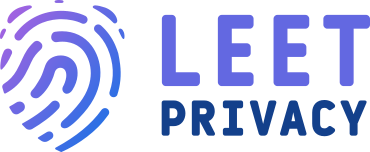Last updated on July 4th, 2023 at 12:26 pm
For third parties, access to the user’s IP address represents valuable information. Moreover, the ‘scale’ of IP use can vary from minor inconvenience for a user or several users to full-scale cyber attacks, including at the state level.

The IP address reveals your real location, and any site you send connection requests to or visit will see and read your IP address. Content providers may use your IP address to apply geo-blocking to you, which is a content restriction that essentially prevents you from accessing a web page or site content unless the site services are located in your country. For example, services like Netflix or Hulu prevent people from watching American content from other countries.
Advertisers track you online and spam you with ads they think you might be interested in. Typically, advertisers use tracking pixels, but they also use your IP address. With it, they can show you ads based on location, so the ads will be in your native language.
Online Ads and Personally Identifiable Information (PII)
While browsing online, you may be sharing more information than you realize. Online ads and other web services can gather data through your public IP address. This data, often termed as personally identifiable information (PII), can include details like your physical location. The aggregation of such information can be exploited by marketers to bombard you with targeted ads or, in worst-case scenarios, may lead to identity theft. Knowing your online identity through your IP address and physical location, criminals can execute phishing scams and other malicious activities with more precision.
However, in addition to these, in fact, legal options for using the user’s IP address, there is also a danger from hackers. Some hackers may harvest IP addresses and sell them on the dark web for profit. Naturally, the cybercriminal is selling more than just your IP address. The address itself is worth almost nothing. Instead, they compile an entire database containing user data that they have managed to steal from various websites, and this data also includes your IP address. This cannot be taken lightly. If someone buys your own IP address on the dark web, it is clearly not out of good intentions. They will either try to use it to impersonate you, get personal information about you, or use it for fraudulent purposes.
If a cybercriminal is skilled enough, using the IP address, he can find out what your ISP (Internet Service Provider) is and use phishing and scam attacks against them, which will reveal your personal data. Persistent enough cyberstalkers may try to use your IP address to track your online activities, which will allow them to find more personal information about you.
Hackers can use a TCP/IP vulnerability to intercept the activities of their victims using their IP addresses. Thus, an IP address can provide hackers with information about open and vulnerable TCP ports on a computer. Typically, an attacker does this by automatically scanning IP addresses. In this way, he can manipulate information packets to inject spyware into the victim’s computer and steal personal credentials.
IP Spoofing
IP spoofing is one of the most common forms of online camouflage. In the case of IP spoofing, the goal is to make the victim believe that the traffic comes from a legitimate sender and believe it. Today, most operating systems implement the generation of random sequence numbers, which makes it difficult to accurately predict them. However, if the sequence number has been compromised, the data can be sent to the target device. A well-designed attack can blindly embed the required data into the system (a new user account), giving the ability to gain access by an attacker posing as a trusted host.
Identity Theft
Anyone knowing your IP address can transact on your behalf online using it. Identity theft is one of the alarming risks associated with having your IP address exposed. Savvy cybercriminals can exploit IP addresses to gather fragments of information about individuals over time. While an IP address alone might not provide extensive personal details, when combined with other data harvested through phishing or malware, it can paint a detailed profile of an individual. This profile can include sensitive data such as Social Security numbers or bank account details, which can be used for fraudulent activities. By associating this collected data with your IP address, an identity thief may engage in complex schemes to impersonate you, gain unauthorized access to financial resources, or commit fraud, wreaking havoc on your financial wellbeing and reputation. Consequently, safeguarding your IP address is a vital component in protecting yourself against identity theft.
Hidden mining should also be noted. Cases of it are growing exponentially.
Knowing the IP address by a criminal can even lead to the commission of an “offline” crime. Since the IP address indicates which city the user is in, if this information gets to third parties, they have the opportunity to find out the actual address. For example, many scammers monitor social media to know when homeowners are leaving town. This increases the risk of committing crimes at the time of the house owners absence.
DDOS – Distributed Denial of Service
Denial of Service (DDOS) attacks are one of the most vicious attacks that can occur when a hacker targets your IP address to carry out an attack. The purpose of this type of attack can sometimes be unclear, but it usually has a financial motive. Hence, it is usually aimed at businesses and rarely at individuals.
At the same time, it should be remembered that traditional means of information protection may not be effective in the event of the emergence of fundamentally new classes of threats and unpredictable anomalies encountered in broadband wireless networks. Using any kind of IP masking that protects your real IP address (Proxy, VPN, SSH Tunneling) is advisable when you need to access questionable services online.
